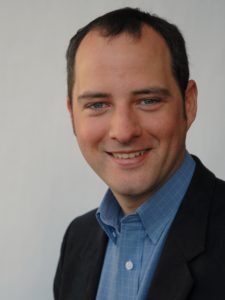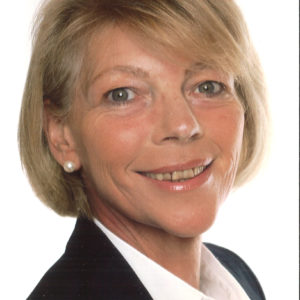This is a guest post by Dr.-Ing. Michael Schwan The guest post reflects the opinion of the author and does not necessarily represent the opinion of the VDE.
Enhanced flexibility: more and more producers of conventional and renewable energies discover the economic advantage of storage systems.
Oleniczak: Good morning, Dr. Schwan. As Head of Power Technologies International, a global consulting business with 200 experts, you are responsible for Energy Business Advisory and Power System Consulting at the Siemens AG. You do not only support the technical work in selected consulting projects for customers worldwide but you also promote the innovation portfolio and thereby the business growth of the Siemens AG. You are also chairman of the Energy Technology Society (ETG) at VDE. The scope of this function also includes energy systems and storage. How do you assess the economic advantage of storage solutions for the future energy system?
Dr. Schwan: From an economic perspective, only those technologies earning revenue for their owners or operators will prevail. Due to their flexibility, storage units yield macroeconomic advantages. Battery storage units, in particular, but also many thermal storage units allow quick and easy controlling of the charging and discharging processes. This very flexibility is exactly what we need for the energy transition. While storage units are still very costly equipment, they are also highly suitable for an energy system and quick to install. Hence, when considering the macroeconomic aspects, incorporating them as an integral part of our energy systems is worth the effort.
Oleniczak: In your view, who should or may operate storage units in the future?
Dr. Schwan: Germany is a free country. Everyone can do as they please with their own private property. We will certainly see the largest proportion of storage unit installations in the private sector. Over the past years, most rooftop PV installations have been installed by house owners primarily in combination with a small storage unit for optimized self-supply. The number of installations among commercial and industrial customers is also growing significantly. Even more so, if technical and economic advantages are involved.
This shows that producers both of conventional and of renewable energies in our energy systems tend to decide in favor of storage systems. This is the result of more flexibility in the operation of applications and of a better marketing of products and services. While thermal storage units are already common here, the number of storage unit installations on the power grid will increase still further. In this respect, Germany is trailing behind somewhat since we had to wait until recently for certain changes to be made in regulation. But we are catching up now.
Enhancing efficiency in energy supply by means of storage units
Oleniczak: So, the installation of more storage units is of both technical and economic advantage to the industry?
Dr. Schwan: Yes, indeed. The installation of storage units creates dynamic and diverse application options. Thus, for example, the quality of industrial processes can be improved which enhances the efficiency of energy supply. Particularly in the private business sector, this also facilitates profitable and investment-securing business models.
Oleniczak: Speaking of business models: What needs to be considered here?
Dr. Schwan: The technical advantages of a storage unit are primarily visible in the private sector, a fact that will remain true in the future. For the purpose of seizing these technical advantages in the energy system, too, business models need to be defined. Particular attention is to be paid to communication. Installing a storage unit in the private business sector alone will not suffice, it must also be able to respond and receive control signals. There still is a lack of basic strategies for using communication technology for the connection of private control systems to those on the network side. There is also still a demand for action as a communication between the German distribution network and some two million rooftop PV installations including their connected storage units would not be sensible. This requires a good amount of developments in the market yet.
Network boosters: Examples Australia and Chile
Oleniczak: In our preliminary talk, you mentioned Chile, a power plant in Australia and the Tesla battery. Can Germany learn something from other countries or are we already in a good position on an international level?
Dr. Schwan: In global comparison, too, we certainly see a strong demand in terms of flexibility since we have a very high absolute capacity of renewable and therefore fluctuating power generation. This is also aided by the exchange within the interconnected European energy system. Hitherto, we have not exactly been global leaders in the use of storage solutions or with lighthouse projects. An example is set by the large Tesla battery recently installed in Australia, the Hornsdale Power Reserve with a power of almost 200 MWh, which very successfully supports network stability in Australia. A 250 MWh network booster currently under construction in Kupferzell helps Germany to catch up. But Australia is going to stay ahead as storage units of 300 MWh to 450 MWh are already being built in Victoria. But the Kupferzell storage unit will not be the last of its type in Germany either.
Somewhat surprising is the fact, that a considerable proportion of the operating reserve in Germany, which formally would be provided by conventional power generating plants, is actually supplied by storage systems. This means that conventional power generating plants are already equipped with storage systems as these allow the provision of a technically improved and economically more efficient operating reserve. Here, too, we are catching up. Due to particular technical requirements and also regulations, Chile is a lot more advanced – for many years, the major proportion of the operating reserve there has been provided by battery storage systems. This goes to show what is technically feasible. Particularly in view of our large quantity of small generating plants, e.g. rooftop PV installations with battery storage units in the basement, it would be a great leap forward on the international level if we were able to connect those to network control systems via communication technology thereby enabling the establishment of network supporting business models.
Multiple usage of storage units: Optimum usage by means of adequate conditions with respect to business models, communication and control technology
Oleniczak: From your perspective, is the multiple usage of storage units sensible?
Dr. Schwan: It is indeed. Storage units are expensive equipment and will continue to be costly even if prices are currently rather falling. From the viewpoint of national economics, their usage should therefore be as comprehensive and efficient as possible. Another reason for multiple usage is that the major proportion of the storage capacity in Germany is not as extensive as many would wish for. Storage systems are primarily installed in the private sector in order to realize end customer application cases. Meanwhile, sufficient research results show that private and network supporting application cases can easily be interconnected. If the required conditions with respect to business models, communication and control technology are met, the equipment can be used to its optimum for the benefit of the overall system.
Oleniczak: Thank you very much, Dr. Schwan.
On the author

Dr.-Ing. Michael Schwan has been Head of Power Technologies International at the Siemens AG since 2018 and is responsible for Energy Business Advisory and Power System Consulting. Since 2020, he has also been chairman of the Energy Technology Society (ETG) at VDE.
From 1993 to 1998, Dr. Schwan studied Electrical Power Engineering (EPEN) at the Universität des Saarlandes in Saarbrücken, where he also received his doctorate. From 2001 to 2005, he worked as head of “Systemstudien und Weiterbildung” (System studies and further education) at the Research Association for Electrical Equipment and Power Economics (FGH e.V.) in Mannheim before moving on to work for the Siemens AG in Erlangen in 2005.
